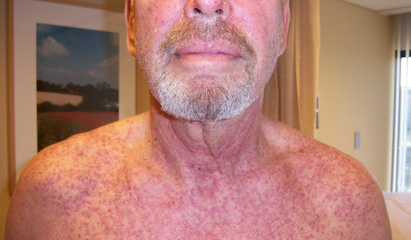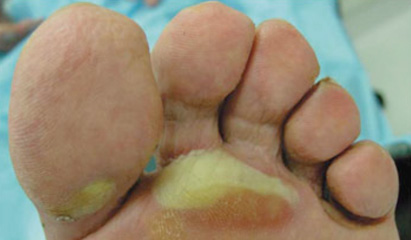What, how much, and when patients eat, as well as dietary supplement use, impact the efficacy of cancer therapy.
Features
For the author, the life stories of patients are more like mysteries than anything. Sometimes the story she thought she knew turns out to be wrong.
Oncology nurses can do much to effectively use epidermal growth factor receptor inhibitors, a mainstay of lung cancer treatment.
When making the copayments on expensive cancer therapies becomes a struggle for patients, a referral to CancerCare can help to alleviate the burden.
Breast cancer affects men as well as women, and the men who live with and survive breast cancer have a number of gender-specific adjustments to make.
The proton therapy debate centers on the high cost of facilities and the equivocal evidence for superior tumor control and patient survival.
Outpatient treatment shortens hospital stays and shifts responsibility for patient care onto family members with no medical training.
Hand-foot syndromes can greatly compromise quality of life. Aggressive management can prevent treatment disruption.
When cancer patients need care and information that their primary health care team cannot provide, individualized counseling and support can often make all the difference.
Lymphedema diminishes function, causes chronic pain, and may make working impossible. Prevention is most effective.









